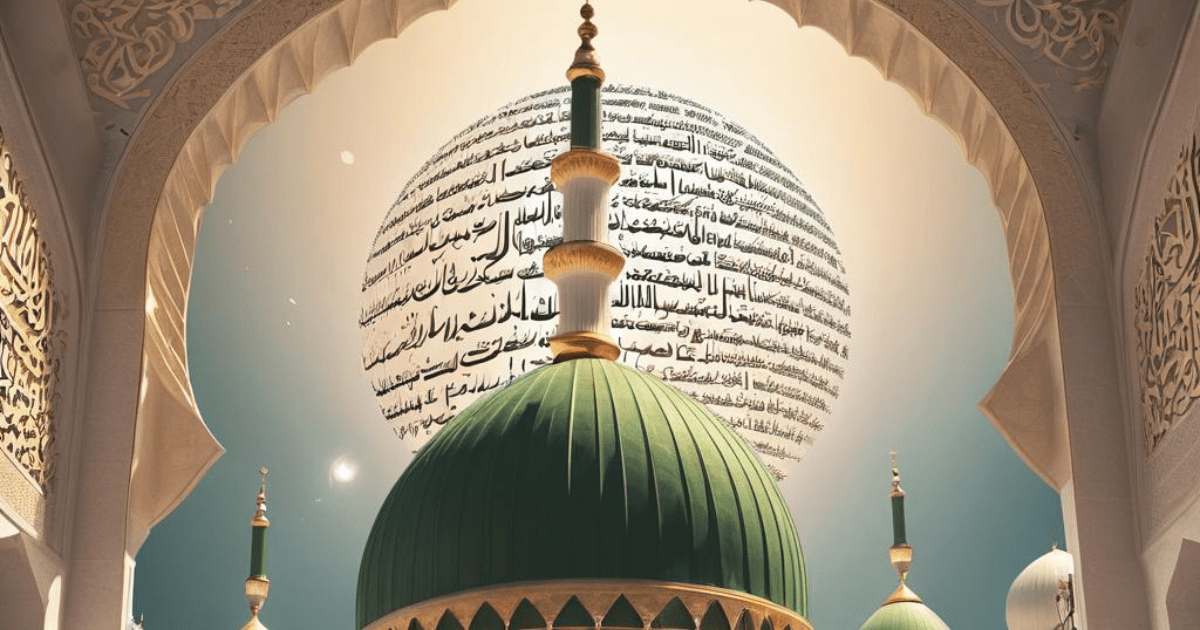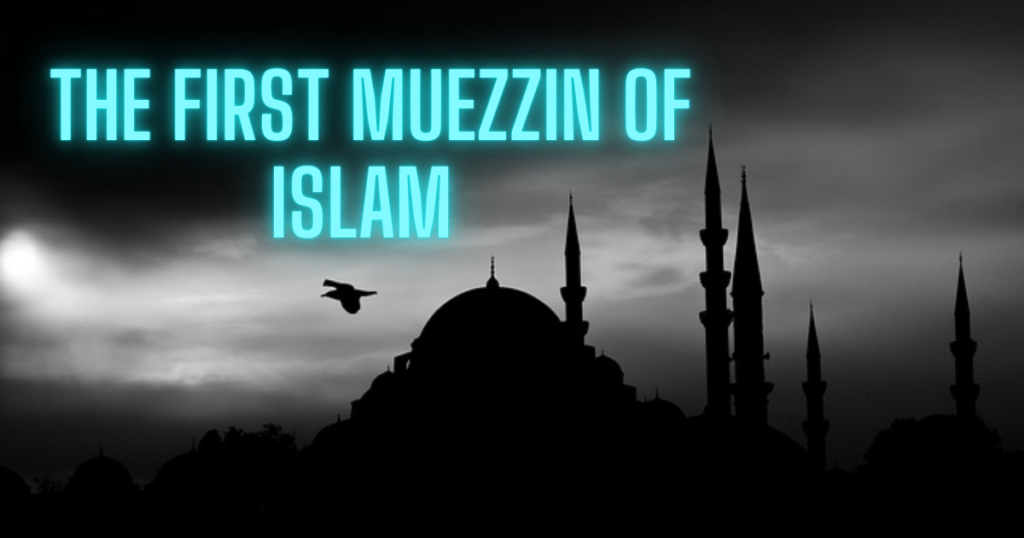
Early Life and Background of Prophet Muhammad (peace be upon him)
Prophet Muhammad, revered as the final messenger of Islam, was born in the year 570 AD in the city of Mecca, located in present-day Saudi Arabia. His birth took place into the noble Quraysh tribe, specifically the Hashim clan, renowned for their leadership and trade in the region.
Birth and Childhood in Mecca
Prophet Muhammad, the founder of Islam, was born in the city of Mecca in present-day Saudi Arabia, around the year 570 CE. He was born into the prominent Quraysh tribe, specifically belonging to the Banu Hashim clan. His father, Abdullah, passed away before his birth, leaving him an orphan from the outset. His mother, Amina, also passed away when he was just six years old, leaving him under the care of his grandfather, Abdul-Muttalib, for a brief period before Abdul-Muttalib’s death. Following his grandfather’s passing, Muhammad was then entrusted to the guardianship of his uncle, Abu Talib.
Orphanhood and Guardianship by His Uncle Abu Talib
Being orphaned at a young age, Muhammad faced the challenges of loss and adversity early in life. His uncle, Abu Talib, assumed responsibility for his upbringing, providing him with care and protection. Abu Talib was a respected member of the Quraysh tribe, known for his integrity and leadership. Under his guardianship, Muhammad grew up in the household of Abu Talib, where he learned the values of loyalty, honesty, and compassion. Despite the absence of his biological parents, Muhammad found stability and love within his extended family.
His Early Career as a Trader
As Muhammad reached adulthood, he became involved in trade, following in the footsteps of his forefathers. Mecca, being a bustling commercial center, offered ample opportunities for commerce and business ventures. Muhammad gained a reputation as a trustworthy and skilled trader, earning the nickname “Al-Amin,” meaning “the trustworthy.” His integrity and fair dealings earned him respect among the people of Mecca, laying the foundation for his later role as a prophet and leader.
During his trading journeys, Muhammad interacted with people from diverse backgrounds, gaining insights into various cultures and beliefs. These experiences would later shape his understanding of human nature and contribute to his teachings as a prophet. Despite his success in trade, Muhammad remained introspective, often seeking solitude in the cave of Hira on the outskirts of Mecca, contemplating the deeper questions of existence and spirituality. It was during one of these retreats that he received the first revelation from Allah, marking the beginning of his prophetic mission.
Spiritual Quest and Retreats to Mount Hira
Before the age of prophethood, Muhammad often retreated to Mount Hira, a cave located near Mecca. In these periods of solitude and contemplation, he sought spiritual enlightenment and a deeper understanding of the universe. These moments of introspection were integral to his journey towards prophethood, as they prepared him for the profound experiences that were to come.
The First Revelation from Angel Gabriel
One significant event during Muhammad’s spiritual quest was the encounter with the angel Gabriel. According to Islamic tradition, during one of his retreats to Mount Hira, Muhammad received his first revelation from Gabriel, who commanded him to “Read” or “Recite” (the Arabic word “Iqra”). This event marked the beginning of Muhammad’s prophethood and the revelation of the Quran, the holy book of Islam. Overwhelmed by the experience, Muhammad returned to Mecca and confided in his wife, Khadijah, who provided him with unwavering support and encouragement.
Initial Opposition from Meccan Society
Upon receiving revelations and proclaiming his prophethood, Muhammad faced opposition and skepticism from various factions within Meccan society. The leaders of Quraysh, the dominant tribe in Mecca, viewed Muhammad’s message as a threat to their authority and the traditional pagan practices of the city. They resisted his teachings and subjected him to ridicule, persecution, and social ostracism. Despite facing adversity, Muhammad remained steadfast in his mission, continuing to convey the message of monotheism and moral reform.
Gathering of Followers and Formation of the Muslim Community
Despite the initial opposition, Muhammad’s message gradually began to resonate with a growing number of individuals in Mecca. Among the early converts were his close family members, including his wife Khadijah, his cousin Ali, and his close friend Abu Bakr. These early followers formed the nucleus of the Muslim community, known as the ummah. As Muhammad continued to preach and spread his message, more people embraced Islam, drawn to its emphasis on monotheism, social justice, and moral ethics. The formation of the Muslim community provided support and solidarity to Muhammad and his followers, enabling them to withstand the challenges posed by Meccan society.
Persecution and Migration to Medina
Escalation of Hostility from the Meccan Quraysh Tribe
As Prophet Muhammad (peace be upon him) began preaching the message of Islam in Mecca, opposition from the Quraysh tribe intensified. The Quraysh leaders, threatened by the monotheistic teachings of Islam, subjected Muhammad and his followers to persecution, ridicule, and economic boycotts. Muslims faced various forms of persecution, including verbal abuse, physical violence, and social ostracism, aimed at suppressing the spread of Islam.
Migration to Abyssinia (Ethiopia) by Some Followers
In response to the persecution in Mecca, Prophet Muhammad advised a group of Muslims to seek refuge in Abyssinia, a Christian kingdom known for its religious tolerance. Led by Ja’far ibn Abi Talib, a small group of Muslims migrated to Abyssinia, where they found asylum under the protection of the Christian ruler, King Negus. The migration to Abyssinia provided temporary relief for persecuted Muslims and demonstrated Islam’s universal appeal beyond the Arabian Peninsula.
Hijra (Emigration) to Medina
As persecution in Mecca escalated, Prophet Muhammad received divine guidance to migrate to the city of Medina, where a growing community of believers awaited him. The migration, known as the Hijra, took place in 622 AD (in the Islamic calendar, Hijri), marking a significant turning point in Islamic history. Muslims left Mecca in small groups, seeking refuge in Medina to escape persecution and establish a safe haven where they could freely practice their faith.
Establishment of the First Islamic State in Medina
Upon arrival in Medina, Prophet Muhammad united the Muhajirun (migrants from Mecca) and the Ansar (residents of Medina) through a pact of brotherhood. The Prophet mediated disputes, resolved conflicts, and laid the groundwork for a just and equitable society based on Islamic principles. The migration to Medina transformed the city into the nucleus of Islam, providing a sanctuary for persecuted believers and fostering the growth of the Islamic faith. The persecution and subsequent migration to Medina marked a critical juncture in the early history of Islam. They demonstrated the resilience and determination of Prophet Muhammad and his followers in the face of adversity, while also paving the way for the establishment of Islam as a global faith community.
Consolidation of Power and Expansion of Islam
Establishment of the Constitution of Medina
Upon migrating to Medina, Prophet Muhammad (peace be upon him) established the Constitution of Medina, also known as the Medina Charter. This constitution served as a social contract that unified the diverse tribes and communities in Medina under the leadership of Prophet Muhammad. It outlined the rights, duties, and responsibilities of different groups within the Muslim community, fostering peace, cooperation, and mutual support. The Constitution of Medina laid the foundation for the first Islamic state, establishing principles of governance based on justice, equality, and religious tolerance.
Series of Battles with Meccan Forces:
The early years of Islam were marked by a series of battles with the Meccan Quraysh tribe, who opposed the spread of Islam and sought to suppress the Muslim community. These battles included engagements such as the Battle of Badr, the Battle of Uhud, and the Battle of the Trench, among others. Despite facing initial challenges and setbacks, the Muslims under the leadership of Prophet Muhammad demonstrated resilience, unity, and strategic prowess in defending their faith and community. The series of battles with Meccan forces tested the resolve and commitment of the Muslim community, ultimately leading to the consolidation of power and the establishment of Islam in the Arabian Peninsula.
Treaty of Hudaybiyyah and Its Ramifications
The Treaty of Hudaybiyyah, signed in 628 AD between the Muslims and the Quraysh of Mecca, provided a period of peace and diplomatic resolution to the conflict between the two parties. Although initially perceived as a setback due to its seemingly unfavorable terms, the treaty allowed for a cessation of hostilities and paved the way for future expansion of Islam. The treaty facilitated peaceful relations between the Muslims and other tribes in Arabia, enabling the spread of Islam through diplomacy, trade, and peaceful coexistence. Its ramifications included a period of internal consolidation and growth for the Muslim community, as well as a strategic shift towards peaceful expansion beyond the Arabian Peninsula.
Conquest of Mecca and Cleansing of the Kaaba
In 630 AD, Prophet Muhammad led the peaceful conquest of Mecca, reclaiming the city from the Quraysh and establishing Islamic governance. The conquest of Mecca was accompanied by the cleansing of the Kaaba, the sacred sanctuary at the center of the city, from idols and pagan symbols. This symbolic act reaffirmed the monotheistic principles of Islam and restored the Kaaba to its original purpose as a house of worship dedicated to Allah alone. The conquest of Mecca and the cleansing of the Kaaba represented a significant milestone in the expansion of Islam, solidifying its position in Arabia and demonstrating the triumph of truth over falsehood.
Final Years and Death
Farewell Pilgrimage and Last Sermon
In the final year of his life, Prophet Muhammad (peace be upon him) performed the Farewell Pilgrimage, also known as Hajjat al-Wida. During this pilgrimage, he delivered his Last Sermon, addressing a vast gathering of Muslims from various tribes and regions. In his sermon, the Prophet emphasized the importance of unity, equality, and brotherhood among Muslims, regardless of race, ethnicity, or social status. He reiterated fundamental principles of Islam, including the sanctity of human life, the prohibition of oppression, and the rights of women and minorities. The Farewell Pilgrimage and Last Sermon served as a culmination of Prophet Muhammad’s teachings and guidance, encapsulating the essence of Islam and providing a blueprint for the Muslim community to follow.
Death of Prophet Muhammad (peace be upon him)
Prophet Muhammad passed away on June 8, 632 AD, in the city of Medina, at the age of 63. His death marked the end of an era and a profound loss for the Muslim community, who mourned the departure of their beloved leader and guide. The Prophet’s death was met with grief and sadness among his companions, who had relied on his wisdom, compassion, and guidance for over two decades. According to Islamic belief, Prophet Muhammad was the final messenger of Allah, chosen to convey the complete and final revelation of Islam to humanity.
His Legacy and Impact on Islamic Civilization
Prophet Muhammad’s legacy extends far beyond his lifetime, shaping the course of Islamic civilization and leaving an indelible mark on human history. He is revered as the ideal exemplar (uswa hasana) for Muslims, embodying the highest moral and ethical standards in every aspect of life. The Prophet’s teachings and practices continue to serve as a source of guidance and inspiration for Muslims worldwide, guiding them in matters of faith, worship, and social conduct. His exemplary character, leadership, and devotion to Allah have inspired countless individuals to strive for righteousness, justice, and compassion in their lives.
Prophet Muhammad’s legacy is evident in the rich tapestry of Islamic civilization, encompassing art, architecture, literature, science, and governance, all of which have been influenced by his teachings and example.
Teachings and Contributions
Qur’anic Revelations and Their Interpretation
Prophet Muhammad (peace be upon him) received the Qur’anic revelations over a period of 23 years, serving as the ultimate source of guidance for Muslims. The Qur’an addresses a wide range of topics, including theology, morality, law, spirituality, and social justice, providing comprehensive guidance for all aspects of life. Prophet Muhammad played a central role in interpreting and explaining the Qur’anic verses to his companions, ensuring a proper understanding and application of its teachings. His interpretations, known as tafsir, laid the foundation for Islamic jurisprudence (fiqh) and theology (aqidah), shaping the intellectual tradition of Islam for centuries to come.
Hadith Collections and Sunnah (Prophetic Traditions)
Hadith collections compile the sayings, actions, and approvals of Prophet Muhammad, known as the Sunnah, which complement and elucidate the teachings of the Qur’an. These Prophetic traditions provide detailed guidance on matters not explicitly addressed in the Qur’an, including rituals, ethics, interpersonal relations, and governance. Prophet Muhammad’s companions meticulously preserved and transmitted his teachings, ensuring their authenticity and reliability for future generations. Hadith collections, such as Sahih al-Bukhari and Sahih Muslim, serve as indispensable sources for understanding the practical application of Islam’s principles in daily life.
Social and Ethical Reforms in Arabian Society
Prophet Muhammad initiated transformative social and ethical reforms in Arabian society, challenging prevalent practices of idolatry, tribalism, and social injustice. He advocated for the abolition of practices such as infanticide, slavery, and exploitation of the vulnerable, promoting principles of equality, compassion, and human dignity. The Prophet’s teachings emphasized the importance of justice, honesty, kindness, and generosity in interpersonal relations, fostering a sense of community and solidarity among Muslims. His reforms laid the groundwork for a more just and equitable society, where individuals were judged not by their lineage or wealth but by their piety and character.
Spiritual and Moral Guidance for Muslims:
Prophet Muhammad provided spiritual and moral guidance to Muslims, emphasizing the importance of faith, piety, and devotion to Allah. He taught the concept of tawhid (monotheism), affirming the absolute unity and sovereignty of God, and the importance of worshiping Him alone. The Prophet’s teachings on humility, patience, gratitude, and forgiveness exemplify the moral virtues cherished in Islam, serving as a model for Muslims to emulate. His emphasis on inner purification (tasawwuf) and spiritual excellence (ihsan) encouraged believers to strive for spiritual growth and closeness to Allah.
Enduring Influence and Global Spread of Islam
Spread of Islam Beyond Arabia:
Following the death of Prophet Muhammad (peace be upon him), Islam spread rapidly beyond the Arabian Peninsula, facilitated by trade, conquests, and missionary activities. Muslim armies conquered vast territories, including Persia, Byzantium, North Africa, and Spain, bringing Islam to diverse cultures and civilizations. The appeal of Islam’s monotheistic message, emphasis on social justice, and egalitarian principles attracted people from different backgrounds, leading to the conversion of millions to the faith. Over the centuries, Islam continued to spread through peaceful means, such as trade routes, migration, and Sufi missionary activities, reaching regions as far as Southeast Asia, Sub-Saharan Africa, and Europe.
Development of Islamic Law (Sharia) and Jurisprudence
Islamic law, known as Sharia, developed over centuries through the interpretation and application of the Qur’an, Hadith, and principles derived from Islamic jurisprudence (fiqh). Muslim scholars elaborated on various legal issues, including worship, transactions, family law, and governance, to provide guidance for Muslims in their personal and communal lives. Different schools of jurisprudence emerged, each with its own methodologies and interpretations, contributing to the richness and diversity of Islamic legal thought. Sharia continues to serve as a comprehensive legal framework for Muslims, guiding them in matters of faith, morality, and conduct.
Cultural, Scientific, and Artistic Contributions of Islamic Civilization
Islamic civilization made significant contributions to various fields, including mathematics, astronomy, medicine, philosophy, literature, and art. Muslim scholars preserved and translated ancient Greek, Persian, and Indian texts, contributing to advancements in mathematics, algebra, geometry, and astronomy. Islamic architecture, characterized by mosques, palaces, and intricate geometric patterns, reflected a fusion of diverse cultural influences and artistic traditions. Islamic civilization fostered a spirit of intellectual inquiry, innovation, and cultural exchange, creating a vibrant and cosmopolitan society that enriched human civilization.
Continued Reverence and Love for Prophet Muhammad (peace be upon him) among Muslims
Prophet Muhammad remains central to the faith and identity of Muslims worldwide, revered as the final messenger of Allah and the embodiment of moral excellence. Muslims express their love and reverence for the Prophet through acts of devotion, such as sending blessings upon him (salawat), commemorating his life and teachings, and emulating his example in their daily lives. The Prophet’s character, compassion, and teachings continue to inspire Muslims to uphold principles of justice, mercy, and righteousness in their personal and communal affairs. His profound impact on the hearts and minds of believers transcends time and place, fostering a deep sense of connection and devotion among Muslims of diverse backgrounds.
In summary, the enduring influence and global spread of Islam are testament to its universal message, which resonates with people of all cultures and civilizations. From its origins in Arabia, Islam has evolved into a global faith community, shaping the lives, beliefs, and cultures of millions around the world.



